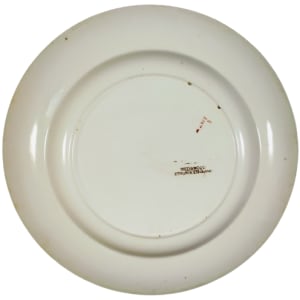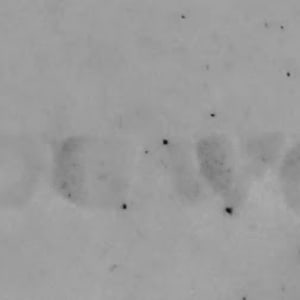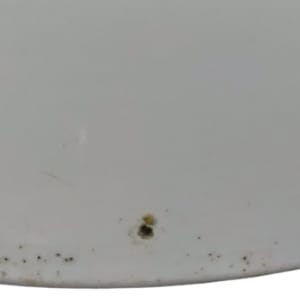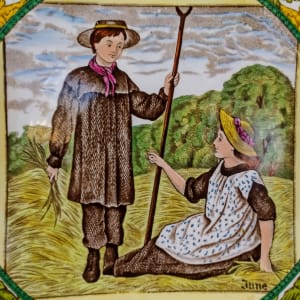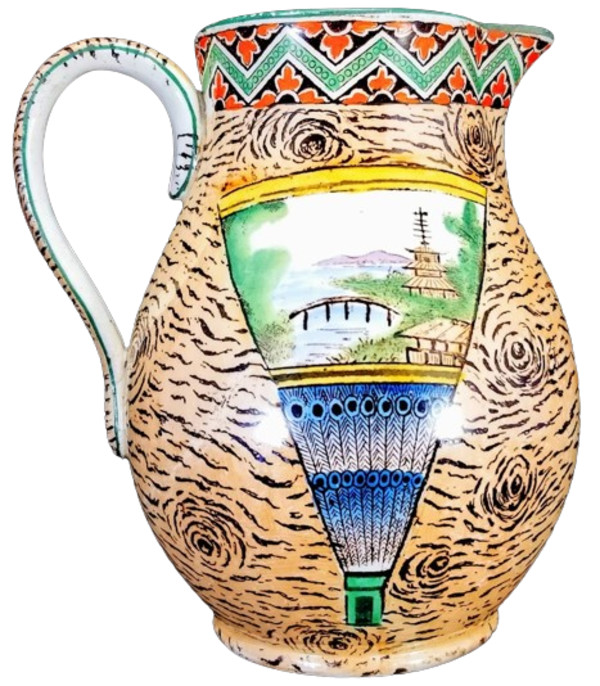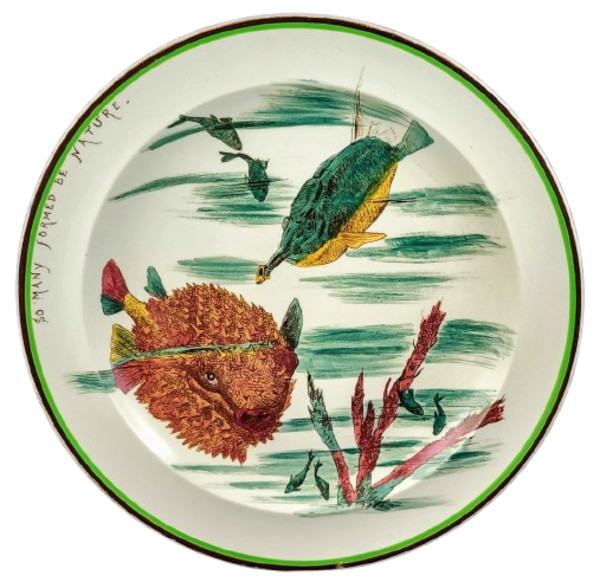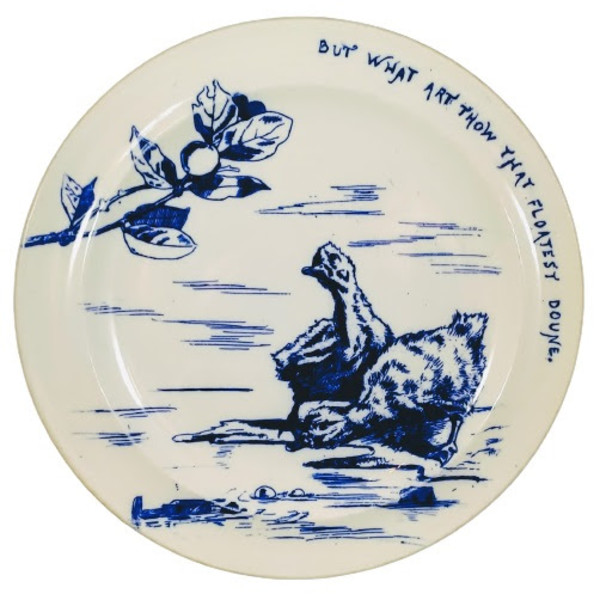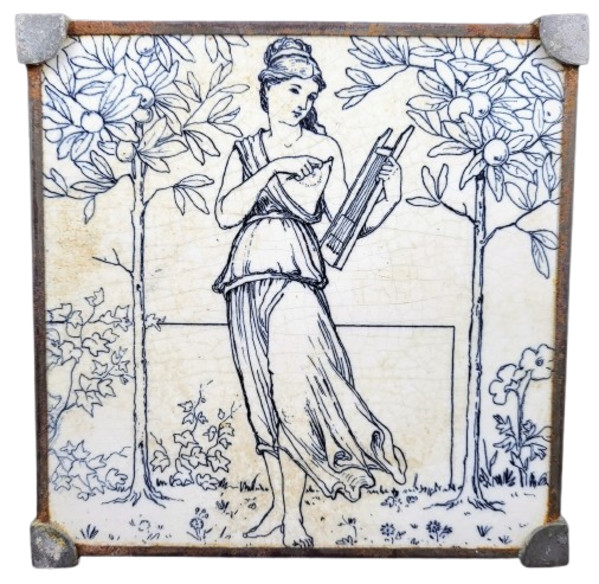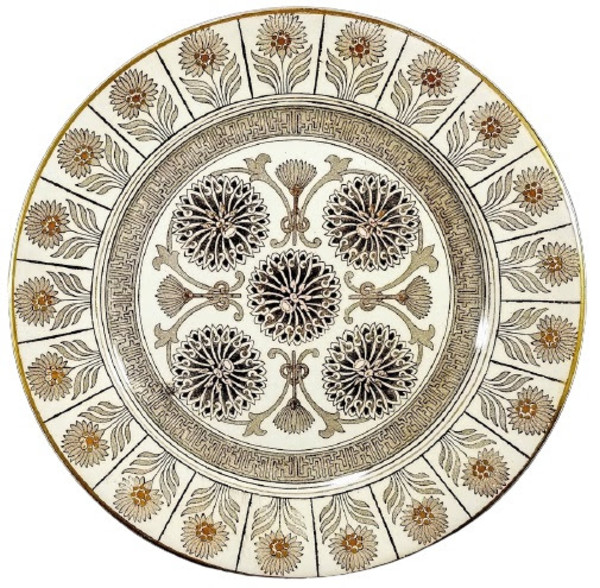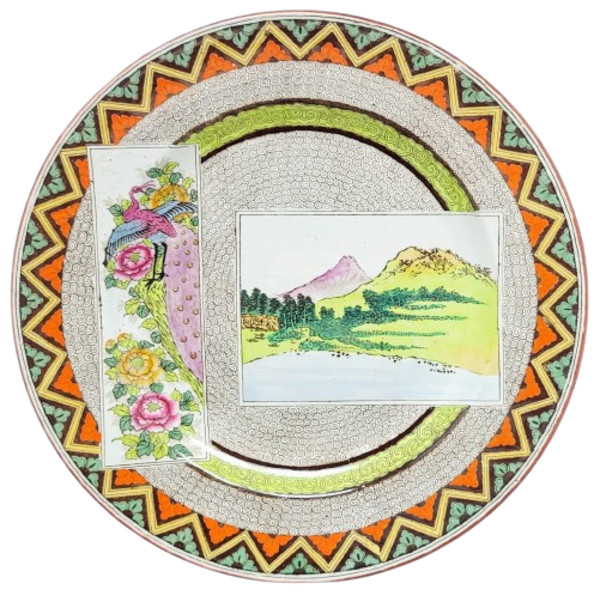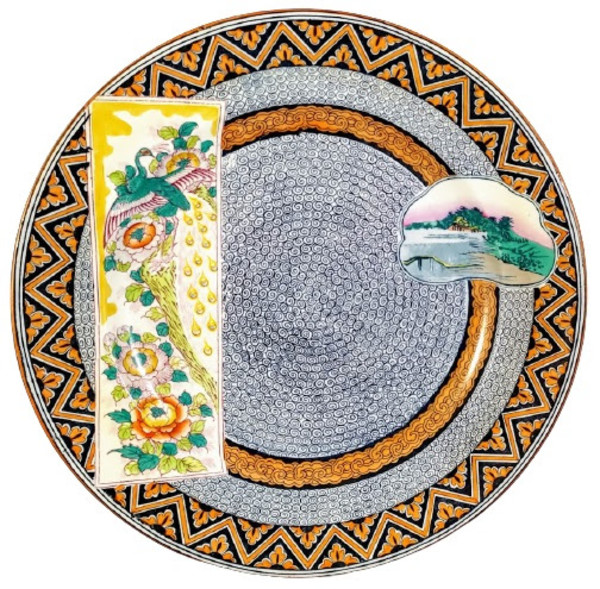- Josiah Wedgwood
- Months: June, c. 1870-1880
- Earthenware
- 10.5 x 10.5 in (26.67 x 26.67 cm)
-
Not For Sale
Plate, 10.5 inches diameter. Black transfer with polychrome clobbering. Printed and impressed maker's marks for Josiah Wedgwood. This pattern was created c. 1870-1880, but this plate was manufactured c. 1903 according to the impressed three-letter date code. Helen J. A. Miles (fl. 1860-1893) designed several series of tiles for Wedgwood, one of which was "Months." The tiles were so popular that Wedgwood eventually used the tile patterns on plates, along with borders from some of their well-known dinner services. This plate features Wedgwood's "Florentine" border. The scene depicted here consists of two country children during the summer haymaking season. A standing boy holding a staff in one hand and a clump of hay in the other looks down at a sitting girl who points toward the hay.
Josiah Wedgwood was born in Burslem, Staffordshire, on July 12, 1730, into a family with a long tradition as potters. At the age of nine, after the death of his father, he worked in his family's pottery. In 1759 he set up his own pottery works in Burslem. There he produced a highly durable cream-colored earthenware that so pleased Queen Charlotte that in 1762 she appointed him royal supplier of dinnerware. From the public sale of Queen's Ware, as it came to be known, Wedgwood was able, in 1768, to build near Stoke-on-Trent a village, which he named Etruria, and a second factory equipped with tools and ovens of his own design. At first only ornamental pottery was made in Etruria, but by 1773 Wedgwood had concentrated all his production facilities there. During his long career Wedgwood developed revolutionary ceramic materials, notably basalt and jasperware. After Wedgwood's death in Etruria on January 3, 1795, his descendants carried on the business, which still produces many of his designs.
- Subject Matter: Aesthetic (Vignette)
- Collections: Aesthetic Transferware, Josiah Wedgwood

